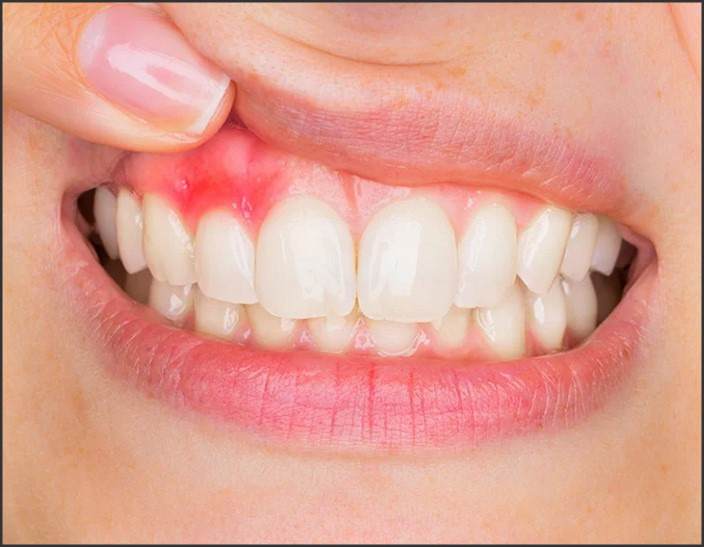Gingivitis Treatment: Strategies for Addressing Early Gum Inflammation

Gingivitis is a common form of gum disease that affects millions of people worldwide. It is caused by the buildup of plaque on the teeth and gums, which can lead to inflammation and infection. If left untreated, gingivitis can progress to periodontitis, a more serious form of gum disease. Fortunately, there are a variety of strategies available to address early gum inflammation and prevent the progression of gingivitis. This article will discuss the various treatment options available for gingivitis, including lifestyle changes, medications, and professional dental care.
How to Identify the Early Signs of Gingivitis and What Treatment Options are Available
Gingivitis is an inflammation of the gums that can lead to more serious gum diseases if left untreated. It is important to identify the early signs of gingivitis in order to prevent further damage to the gums and teeth.
The most common signs of gingivitis are red, swollen, and tender gums that may bleed when brushing or flossing. Other signs include bad breath, receding gums, and a change in the way the teeth fit together when biting. If any of these symptoms are present, it is important to seek treatment from a dentist or periodontist.
Treatment for gingivitis typically involves a professional cleaning to remove plaque and tartar buildup. The dentist may also prescribe antibiotics to reduce inflammation and help fight infection. In some cases, a deep cleaning may be necessary to remove plaque and tartar from below the gum line.
In addition to professional treatment, there are several steps that can be taken at home to help reduce the symptoms of gingivitis. These include brushing and flossing twice a day, using an antibacterial mouthwash, and avoiding sugary and starchy foods. It is also important to visit the dentist regularly for checkups and cleanings.
By recognizing the early signs of gingivitis and seeking treatment, it is possible to prevent further damage to the gums and teeth. With proper care and maintenance, it is possible to keep gingivitis from progressing to more serious gum diseases.
Understanding the Benefits of Regular Dental Check-Ups for Preventing and Treating Gingivitis
Regular dental check-ups are essential for preventing and treating gingivitis. Gingivitis is an inflammation of the gums caused by bacteria in plaque that accumulates on the teeth. If left untreated, gingivitis can lead to more serious gum diseases, such as periodontitis.
During a regular dental check-up, your dentist will examine your teeth and gums for signs of gingivitis. They will look for redness, swelling, and bleeding of the gums. They may also take X-rays to check for any bone loss that may have occurred due to periodontal disease.
Regular dental check-ups are important for preventing gingivitis. During a check-up, your dentist will clean your teeth and remove any plaque and tartar that has built up. This helps to reduce the amount of bacteria in your mouth, which can help to prevent gingivitis.
Regular dental check-ups are also important for treating gingivitis. Your dentist may recommend a professional cleaning to remove plaque and tartar from your teeth. They may also prescribe antibiotics to help reduce the inflammation and infection in your gums.
In addition to professional cleaning and antibiotics, your dentist may also recommend lifestyle changes to help prevent and treat gingivitis. These may include brushing and flossing your teeth twice a day, using an antibacterial mouthwash, and avoiding sugary and starchy foods.
Regular dental check-ups are essential for preventing and treating gingivitis. They help to remove plaque and tartar from your teeth, reduce the amount of bacteria in your mouth, and provide treatment for any existing gum disease. By following your dentist’s advice and making lifestyle changes, you can help to keep your gums healthy and prevent gingivitis.
Conclusion
In conclusion, gingivitis treatment is an important part of maintaining oral health. Early detection and treatment of gingivitis can help prevent more serious gum diseases and other oral health problems. There are a variety of strategies that can be used to address early gum inflammation, including brushing and flossing regularly, using an antiseptic mouthwash, and visiting the dentist for regular check-ups. With proper care and attention, gingivitis can be managed and prevented.